Kia Niro vs BYD Seal 6 – Which model is better for everyday use?
Two cars, one duel: Kia Niro meets BYD Seal 6.
Which one wins in performance, efficiency and value for money? Find out now!
Costs and Efficiency: When it comes to price and running costs, the biggest differences usually appear. This is often where you see which car fits your budget better in the long run.
Kia Niro has a evident advantage in terms of price – it starts at 29100 £, while the BYD Seal 6 costs 36800 £. That’s a price difference of around 7714 £.
Fuel consumption also shows a difference: BYD Seal 6 manages with 1.70 L and is therefore decisively more efficient than the Kia Niro with 2.40 L. The difference is about 0.70 L per 100 km.
As for range, the BYD Seal 6 performs evident better – achieving up to 100 km, about 38 km more than the Kia Niro.
Engine and Performance: Under the bonnet, it becomes clear which model is tuned for sportiness and which one takes the lead when you hit the accelerator.
When it comes to engine power, the BYD Seal 6 has a to a small extent edge – offering 212 HP compared to 180 HP. That’s roughly 32 HP more horsepower.
In acceleration from 0 to 100 km/h, the BYD Seal 6 is to a small extent quicker – completing the sprint in 8.50 s, while the Kia Niro takes 9.90 s. That’s about 1.40 s faster.
In terms of top speed, the Kia Niro performs barely noticeable better – reaching 185 km/h, while the BYD Seal 6 tops out at 180 km/h. The difference is around 5 km/h.
Space and Everyday Use: Beyond pure performance, interior space and usability matter most in daily life. This is where you see which car is more practical and versatile.
Both vehicles offer seating for 5 people.
In curb weight, Kia Niro is a bit lighter – 1474 kg compared to 1710 kg. The difference is around 236 kg.
In terms of boot space, the BYD Seal 6 offers slight more room – 500 L compared to 451 L. That’s a difference of about 49 L.
In maximum load capacity, the BYD Seal 6 performs hardly perceptible better – up to 1535 L, which is about 90 L more than the Kia Niro.
When it comes to payload, Kia Niro slight takes the win – 466 kg compared to 435 kg. That’s a difference of about 31 kg.
Who comes out on top?
Overall, the BYD Seal 6 shows itself to be is largely superior and secures the title of DriveDuel Champion.
It convinces with the more balanced overall package and proves to be the more versatile choice for everyday use.
BYD Seal 6
Kia Niro
The Kia Niro presents itself as a versatile and eco-friendly SUV, blending a stylish design with advanced hybrid technology. Its spacious interior offers comfort and practicality, making it ideal for both city driving and longer journeys. With a focus on efficiency and sustainability, the Niro is a compelling choice for environmentally conscious drivers.
details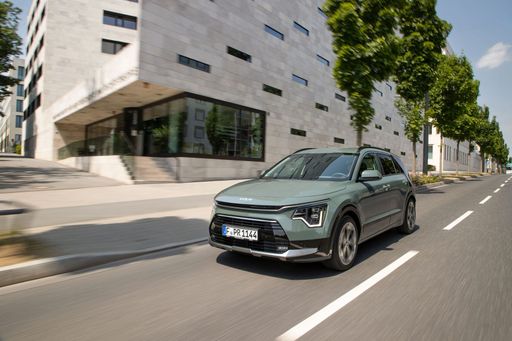 @ press.kia.com
@ press.kia.com
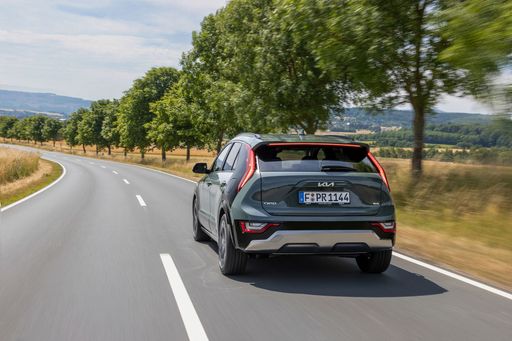 @ press.kia.com
@ press.kia.com
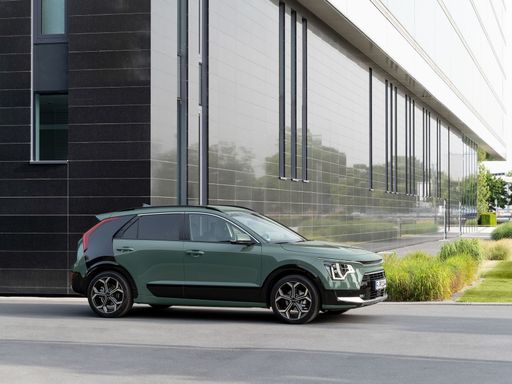 @ press.kia.com
@ press.kia.com
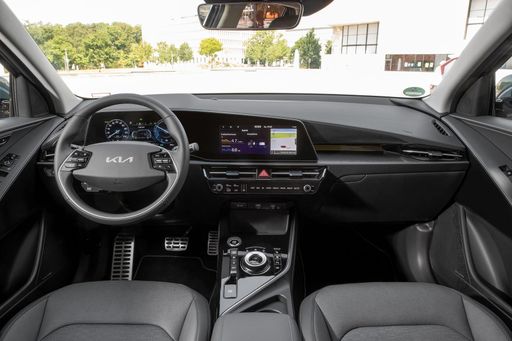 @ press.kia.com
@ press.kia.com
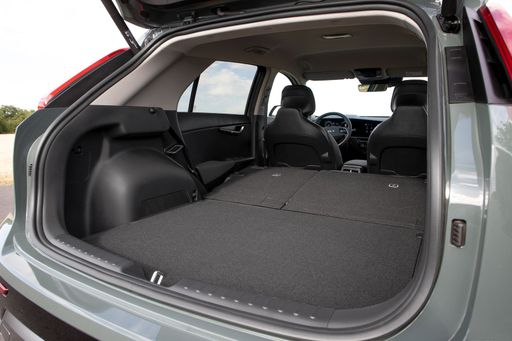 @ press.kia.com
@ press.kia.com
BYD Seal 6
The BYD Seal 6 is a captivating electric sedan that captures attention with its sleek design and modern aerodynamics. With a strong focus on sustainability, it offers an impressive electric driving experience, combining efficiency with cutting-edge technology. The Seal 6 stands out in the EV market for its luxurious interior and innovative features, making it a strong contender for drivers looking to embrace the future of transportation.
details

|
|
|
|
|
Costs and Consumption |
|
|---|---|
|
Price
29100 - 38600 £
|
Price
36800 - 42800 £
|
|
Consumption L/100km
2.4 - 4.9 L
|
Consumption L/100km
1.7 - 2.6 L
|
|
Consumption kWh/100km
-
|
Consumption kWh/100km
-
|
|
Electric Range
57 - 62 km
|
Electric Range
50 - 100 km
|
|
Battery Capacity
1.3 - 11.1 kWh
|
Battery Capacity
-
|
|
co2
53 - 111 g/km
|
co2
38 - 60 g/km
|
|
Fuel tank capacity
37 - 42 L
|
Fuel tank capacity
65 L
|
Dimensions and Body |
|
|---|---|
|
Body Type
SUV
|
Body Type
Estate
|
|
Seats
5
|
Seats
5
|
|
Doors
5
|
Doors
5
|
|
Curb weight
1474 - 1594 kg
|
Curb weight
1710 - 1805 kg
|
|
Trunk capacity
348 - 451 L
|
Trunk capacity
500 L
|
|
Length
4420 mm
|
Length
4840 mm
|
|
Width
1825 mm
|
Width
1875 mm
|
|
Height
1545 mm
|
Height
1505 mm
|
|
Max trunk capacity
1342 - 1445 L
|
Max trunk capacity
1535 L
|
|
Payload
466 kg
|
Payload
435 kg
|
Engine and Performance |
|
|---|---|
|
Engine Type
Full Hybrid, Plugin Hybrid
|
Engine Type
Plugin Hybrid
|
|
Transmission
Automatic
|
Transmission
Automatic
|
|
Transmission Detail
Dual-Clutch Automatic
|
Transmission Detail
CVT
|
|
Drive Type
Front-Wheel Drive
|
Drive Type
Front-Wheel Drive
|
|
Power HP
138 - 180 HP
|
Power HP
184 - 212 HP
|
|
Acceleration 0-100km/h
9.9 - 11.4 s
|
Acceleration 0-100km/h
8.5 - 8.9 s
|
|
Max Speed
170 - 185 km/h
|
Max Speed
180 km/h
|
|
Torque
265 Nm
|
Torque
-
|
|
Number of Cylinders
4
|
Number of Cylinders
4
|
|
Power kW
102 - 132 kW
|
Power kW
135 - 156 kW
|
|
Engine capacity
1580 cm3
|
Engine capacity
1498 cm3
|
General |
|
|---|---|
|
Model Year
2025
|
Model Year
2025
|
|
CO2 Efficiency Class
C, B
|
CO2 Efficiency Class
B
|
|
Brand
Kia
|
Brand
BYD
|
Is the Kia Niro offered with different drivetrains?
The Kia Niro is available as Front-Wheel Drive.
The prices and data displayed are estimates based on German list prices and may vary by country. This information is not legally binding.
